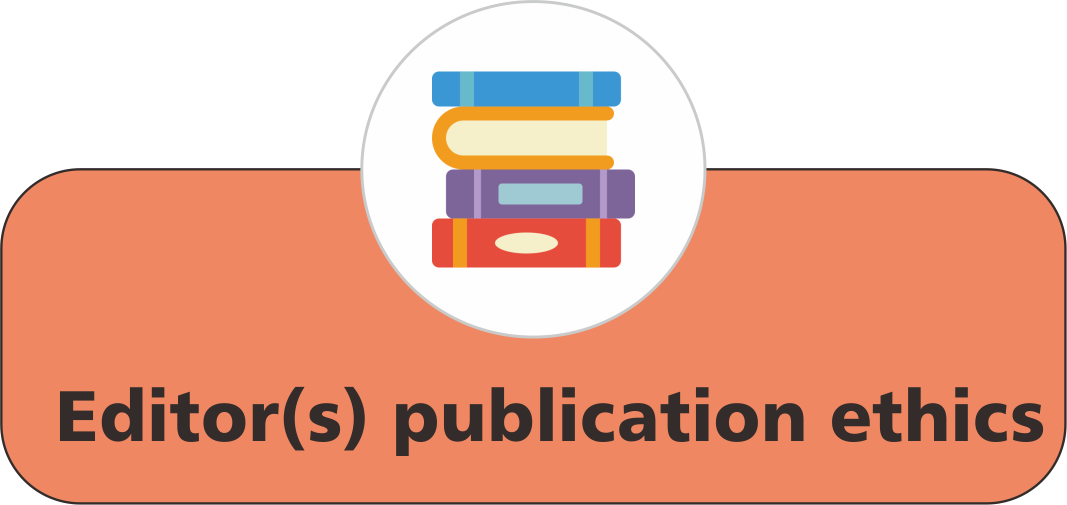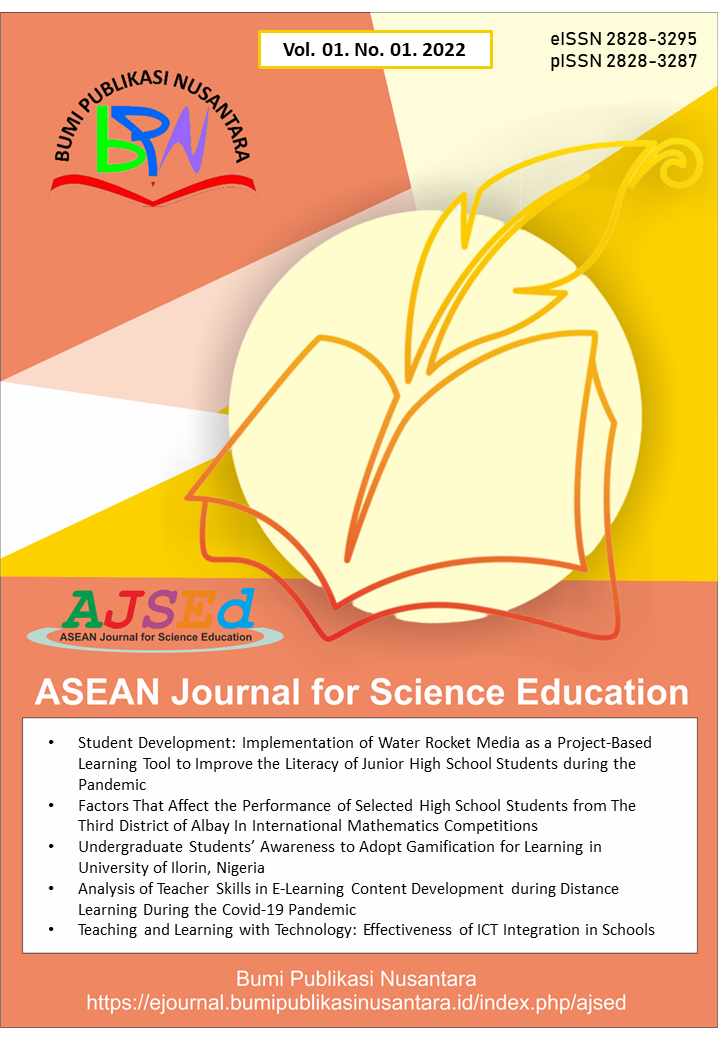Effect of Conceptual Change Instructional Strategy on Chemistry Students' Performance in Acids and Bases Concepts
 ), Binta Asabe Muhammad(2), Abdullahi Zaharaddeen Yamusa(3),
), Binta Asabe Muhammad(2), Abdullahi Zaharaddeen Yamusa(3),
(1) Federal College of Education Zaria
(2) Federal College of Education Zaria
(3) Federal College of Education Zaria
 Corresponding Author
Corresponding Author
Abstract
Keywords
References
Barke, H. D. (2023). Broensted acids and bases: History, misconception, and application today. ASEAN Journal for Science Education, 2(1), 23-32.
Barke, H. D., and Buechter, J. (2023). Laboratory jargon and misconceptions in chemistry an empirical study. ASEAN Journal of Science and Engineering Education, 3(1), 65-70.
Chambers, S. K., and Andre, T. (2021). Gender, prior knowledge, interest, and experience in electricity and conceptual change text manipulations in learning about direct current. Journal of Research in Science Education, 34, 107-123.
Cooper M. M., Kouyoumdjian, S., and Underwood, S. M. (2018). Investigating students reasoning about acid-base reactions. Journal of Chemical Education, 93(10), 1703–1712.
Eryılmaz, A. (2018). Effects of conceptual assignments and conceptual change discussion on students’ misconceptions and achievement regarding force and motion. Journal of Research in Science Teaching, 31(10), 1001-1015.
Francis, T. T., and Baba, S. J. (2023). Effect of concept mapping teaching approach on students’ academic performance in chemistry in senior secondary schools. Indonesian Journal of Educational Research and Technology, 3(1), 69-78.
Gabel, D. (2003). Enhancing the conceptual understanding of science. Educational Horizons, 81(2), 70–76.
Geban, O. (2018). Understanding the acid-base concepts by using conceptual change approach. Hacatte Universities Journal of Education, 9, 69-72.
Gilbert, J. K. (2018). On the nature of “context” in chemical education. International Journal of Science Education, 28(9), 957– 976.
Godfred, S. A. (2020) Remediating pre-service integrated science teachers’ misconceptions about acid-base concepts using cognitive conflict instructional strategy. American Journal of Education and Information Technology, 4(2), 86-98.
Kikas, E. (2020). Teacher’s conceptions and misconceptions concerning three national phenomena. Journal of Research in Science Teaching, 41(5), 432 – 448.
Osborne, R., Cosgrove, M., and Schollum, B. (1982). Chemistry and the learning in science project. Chemistry in New Zealand, 10, 104-106.
Özdemir, G., and Clark, D. B. (2007). An overview of conceptual change theories. Eurasia Journal of Mathematics, Science and Technology Education, 3(4), 351-361.
Putri, S. R., Hofifah, S. N., Girsang, G. C. S., and Nandiyanto, A. B. D. (2022). How to identify misconception using certainty of response index (cri): A study case of mathematical chemistry subject by experimental demonstration of adsorption. Indonesian Journal of Multidiciplinary Research, 2(1), 143-158.
Tacettin, P. (2020). Turkish undergraduate students’ misconceptions on acids and bases. Journal of Baltic Science Education. 6(1), 6-16.
Ukens, L., Hein, W. W., Johnson, P. A., and Layman, J. W. (2004). Powerful ideas in physical science: A course model. Journal of College Science Teaching, 33(7), 38–41.
Article Metrics
Abstract View : 1475 times
: 1475 times Download : 1216 times
Download : 1216 times
Refbacks
- There are currently no refbacks.
Copyright (c) 2022 Bumi Publikasi Nusantara

This work is licensed under a Creative Commons Attribution-ShareAlike 4.0 International License.







